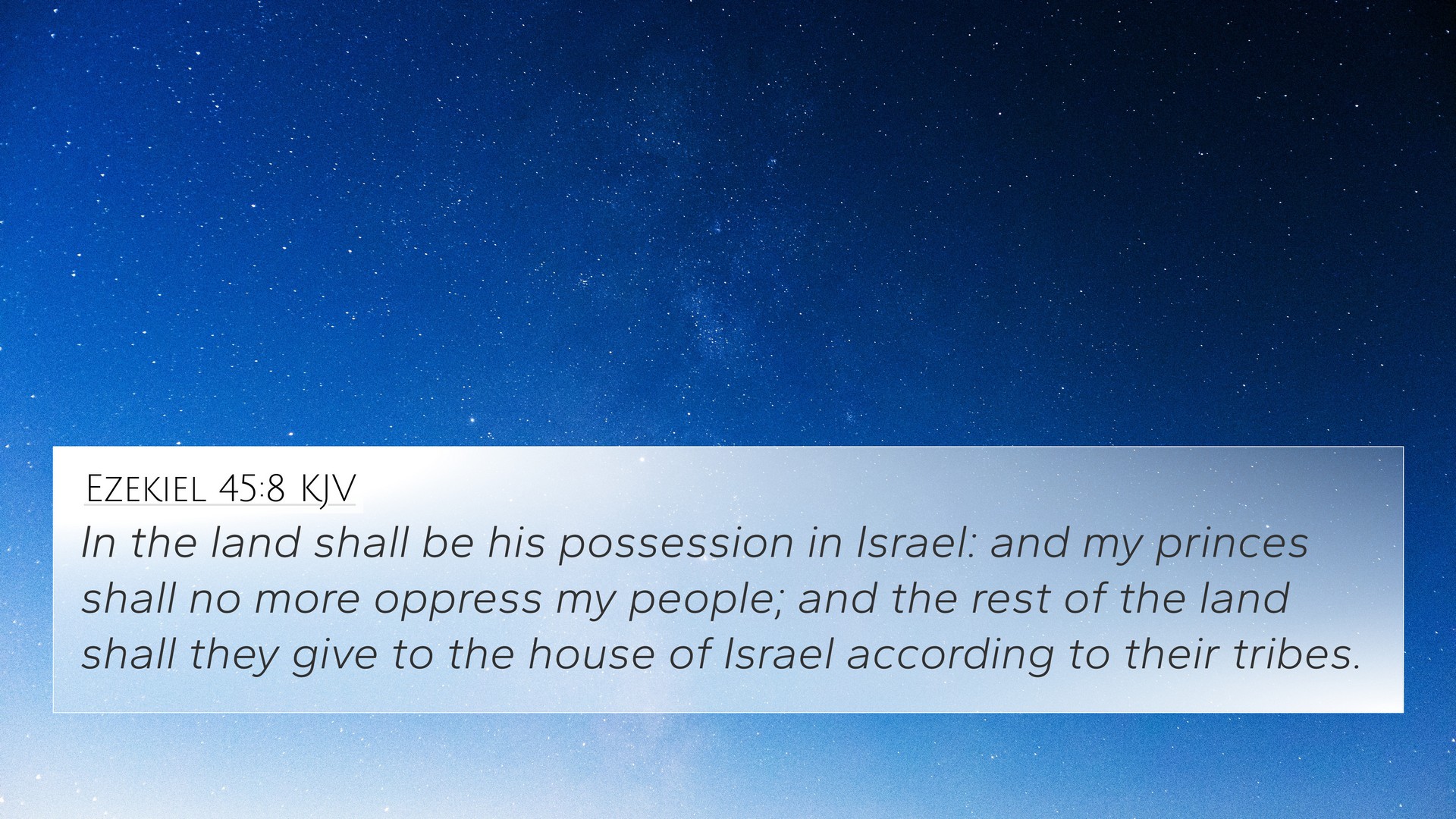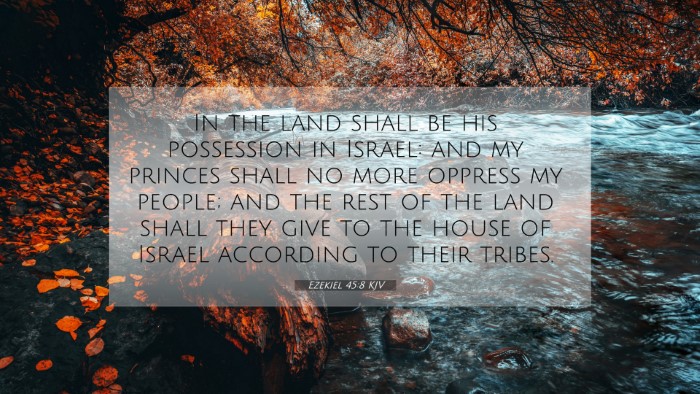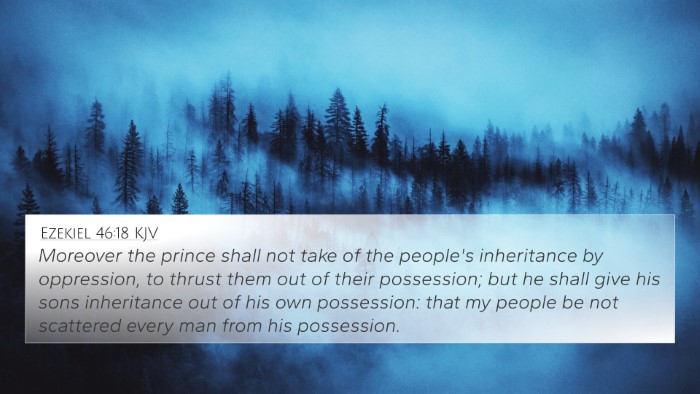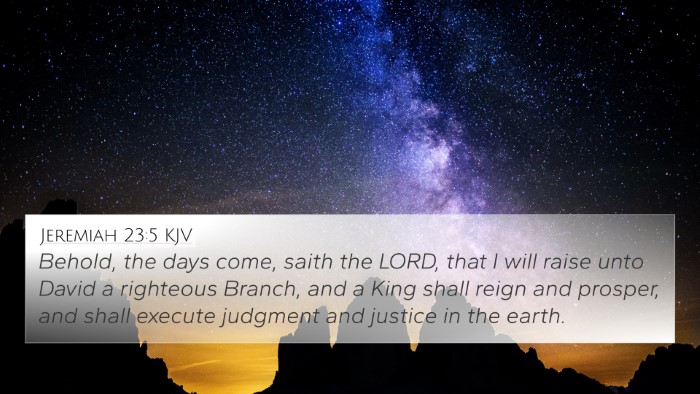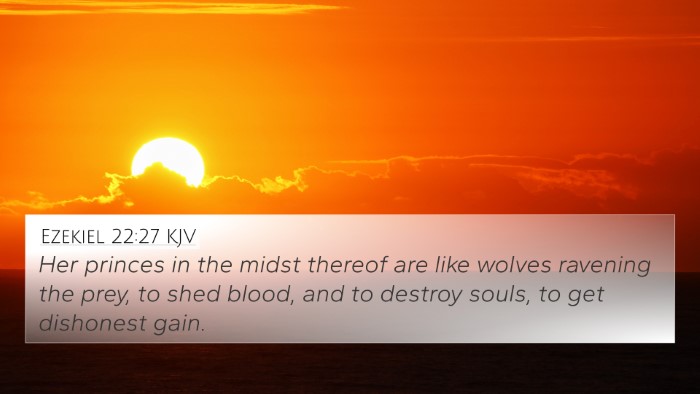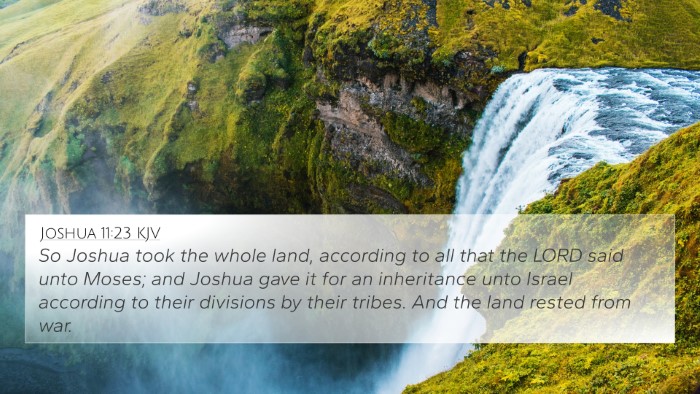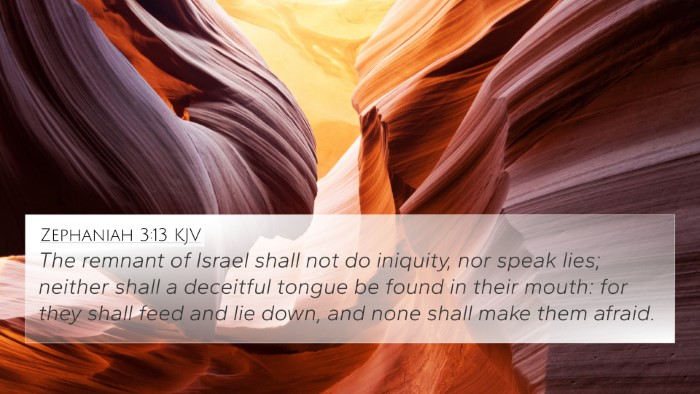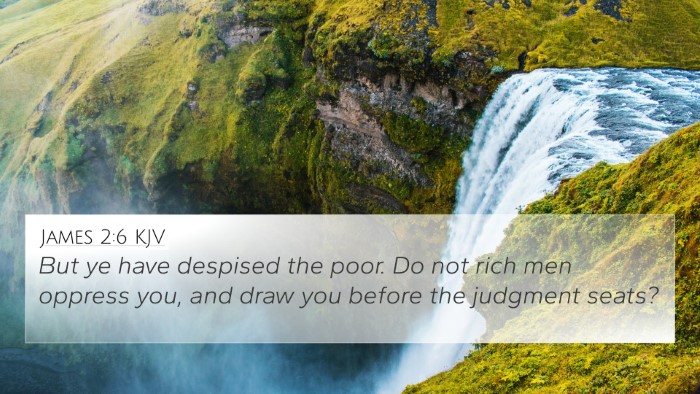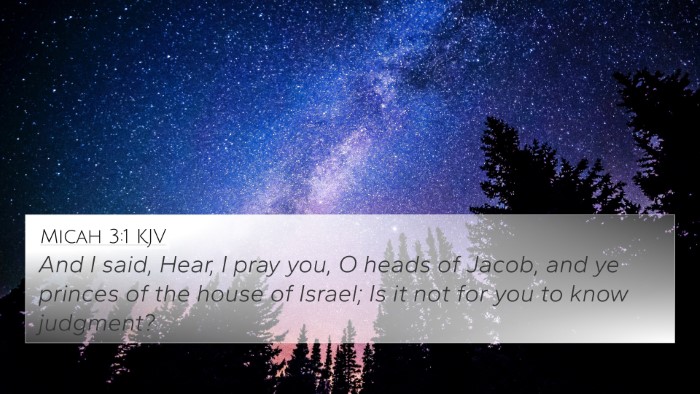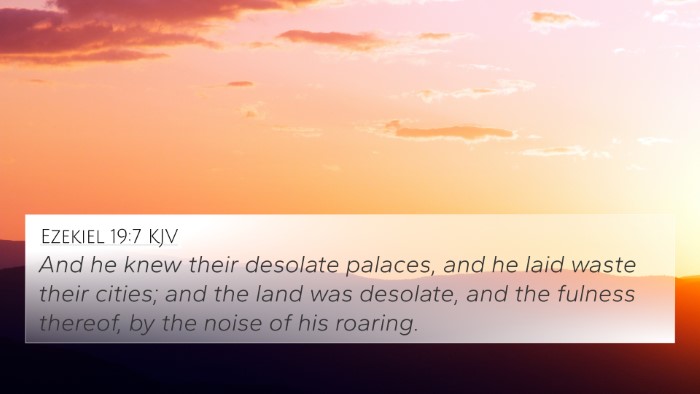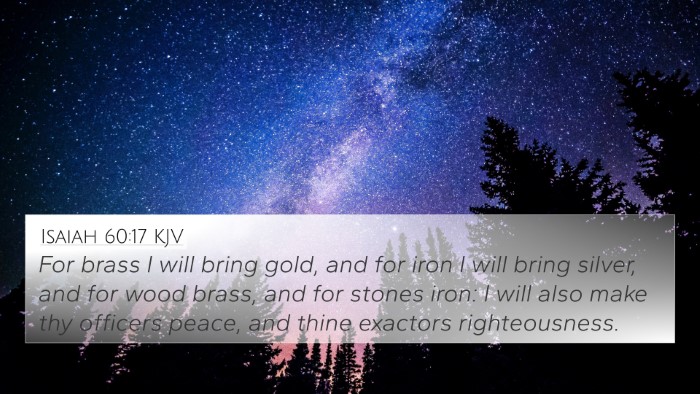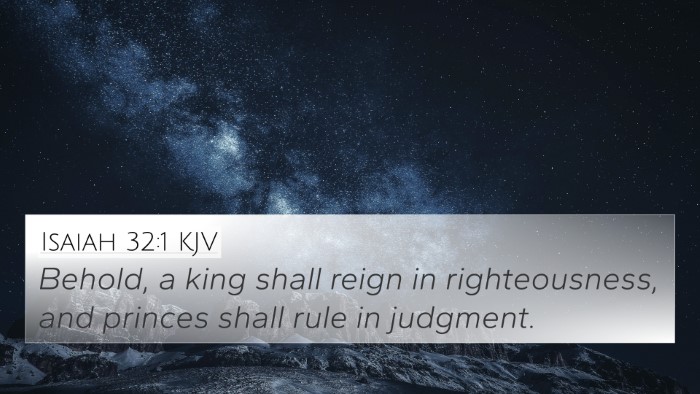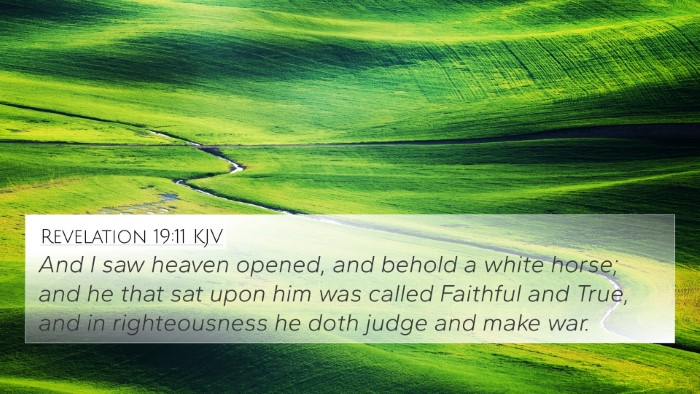Ezekiel 45:8 - Summarized Meaning and Interpretation
The verse Ezekiel 45:8 states: "In the land shall be his possession in Israel: and my princes shall no more oppress my people; and the rest of the land shall they give to the house of Israel according to their tribes."
This verse captures the essence of justice and equity in the distribution of land among the people of Israel, highlighting a divine mandate for leadership that is free from oppression.
Commentary Insights
The interpretations from prominent public domain commentaries provide a rich understanding of this passage:
-
Matthew Henry:
Henry emphasizes the prophetic vision of a just leader in Israel, underlining the importance of righteousness in governance. He asserts that this verse reflects God's call for leaders to protect rather than exploit their people, representing a return to a divinely orchestrated order.
-
Albert Barnes:
Barnes focuses on the implications of shared land among the tribes of Israel. He points out that the equitable distribution signifies God's intention for harmony within His covenant people, and the cessation of oppression indicates a reformation of societal values expected from the rulers.
-
Adam Clarke:
Clarke elucidates the socio-political context of Ezekiel’s message, suggesting that this instruction serves to restore the dignity of the Israelite community. He highlights that the promise of land possession is both a material and spiritual metaphor for God's faithfulness.
Key Themes and Takeaways
-
Justice and Equity: The verse calls for fairness in leadership, indicating that rulers are accountable to God for their treatment of the people.
-
Divine Governance: It showcases God's direct involvement in the re-establishment of order in Israel, emphasizing the continuity of His covenant.
-
Positive Leadership: The text denotes a shift from oppression to protection, symbolizing the ideal model of governance that aligns with God’s heart.
Bible Verse Cross-References
Understanding Ezekiel 45:8 can be enriched through various cross-references that reveal its intertextual significance and thematic connections:
- Isaiah 1:17: "Learn to do good; seek justice..." - Encouraging leaders to pursue righteousness.
- Jeremiah 22:3: "Thus says the Lord: Do justice and righteousness..." - A command for governance aligned with God's will.
- Ezekiel 18:30: "Therefore I will judge you, O house of Israel..." - The call for repentance and righteousness before judgment.
- Micah 6:8: "He has shown you, O mortal, what is good..." - Emphasizing the importance of justice and humility.
- Matthew 20:25-26: “But Jesus called them to him, saying, 'You know that the rulers of the Gentiles lord it over them...'" - A New Testament reflection on servant leadership.
- Romans 12:1-2: "I appeal to you therefore, brothers, by the mercies of God..." - A call to live transformed lives under God's principles.
- 1 Peter 5:2-3: "Shepherd the flock of God that is among you, exercising oversight..." - An exhortation for leaders to serve selflessly.
Applying the Verse Today
In contemporary discourse, Ezekiel 45:8 serves as a profound reminder of the ethical responsibilities that come with leadership. It implores us to consider how leaders impact their communities and challenges us to advocate for systems that empower rather than oppress.
Conclusion
Ezekiel 45:8 carries significant weight in understanding the nature of God's expectations for governance among His people. Through cross-referencing with related scriptures, one can see a cohesive narrative emphasizing justice, accountability, and righteousness that transcends both the Old and New Testaments.
Engaging in Deeper Study
For those interested in delving deeper into the thematic connections of the Bible, utilizing a bible concordance or bible cross-reference guide can significantly enhance your understanding. Exploring tools for bible cross-referencing can reveal additional layers of meaning, fostering a comprehensive Bible study experience.
